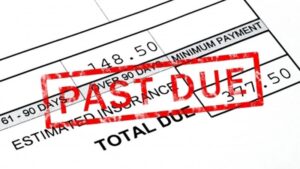Insolvency Practitioners to be Independently Regulated – About Time
Last week, the Office of Fair Trading (OFT) released a report criticising the insolvency industry and calling for the establishment of a complaints body to regulate practitioners.
The report found that, on average, insolvency practitioners (IPs) earn fees of up to 20pc of the assets available when firms are wound up. A large part of the remaining 80pc is normally paid to secured creditors (banks, lenders and finance companies).
Preferential creditors, such as employees, are generally paid after secured creditors and given priority over unsecured creditors such as small businesses, customers, and the taxman, who nearly always end up with nothing.
Legally, secured creditors must be paid first. IPs are only accountable to secured creditors so it’s not unusual for the two to exclusively decide how much can be realised from a debtor’s assets to pay the secured creditor.
Normally, the remaining balance is collected by the IP as a fee.
IPs have operated like this – in a self-regulated industry – since 1986, and it’s unfair. An independent watchdog is absolutely welcomed.
It’s worth noting that insolvent companies are not obliged to use IPs for their liquidation, Company Voluntary Arrangement (CVAs) or Pre Pack Administration process.
The law states that you must stop trading, and prevent further loss to your creditors when a business becomes insolvent. But it does not say you must go to an IP and this is especially the case for small businesses. There are less expensive options available.
Debtor Alert: Theodore Global Ltd
Theodore Global Ltd: A Company That Fails to Pay Its Staff and Trades While Insolvent If you’re thinking about working with, or for Theodore Global…
Read MoreIrene MacKenzie- The Gatekeeper of Silence
Irene MacKenzie and the Web Around William Jackson In the shadows of the alternative investment world, where buzzwords are abundant but redemptions are not, one…
Read MoreThe Grim Truth for Loan Note Holders -79th Luxury Living Six Ltd (LL6)
No assets or safeguards. No clear path to recovery. If you’re one of the many investors who entrusted your money to The 79th Group’s loan…
Read MoreOverdrawn Directors’ Loan Accounts: How to Avoid Trouble
Many company directors borrow money from their businesses through what’s known as a director’s loan account (DLA). In principle, there’s nothing wrong with this, so…
Read More




